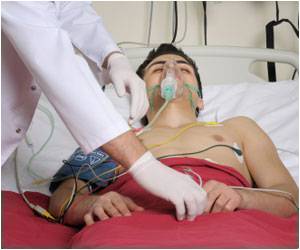The proportion of residents receiving feeding tubes declined from 11.7% in 2000 to 5.7% in 2014. Insertion rates declined from 8.6 to 3.1%.
The number of nursing home residents with advanced dementia and tube feeding has decreased by 50% between 2000 and 2014, says a new study.
Researchers from the Harvard affiliated Hebrew SeniorLife Institute for Aging Research (IFAR), Brown University's Center for Gerontology and Health Care Research and University of Washington's Cambia Palliative Care Center of Excellence conducted the study.
TOP INSIGHT
The use of feeding tubes in elderly nursing home patients with severe dementia declined from 11.7% in 2000 to 5.7% in 2014.
Investigators reviewed data on more than 71,000 advanced dementia residents in nursing homes across the U.S. From 2000 - 2014, researchers found that the proportion of residents receiving feeding tubes declined from 11.7% in 2000 to 5.7% in 2014. Among white patients, insertion rates declined from 8.6 to 3.1% while rates in black patients declined from 37.6-17.5%. For both cohorts, the proportion of residents with advanced dementia and eating dependency who received feeding tubes decreased by approximately 50% between 2000 and 2014.
According to Susan L. Mitchell MD, MPH, lead author of the study and HSL title, "This decline parallels the emergence of research, expert opinion, and recommendations by national organizations discouraging this practice."
In the future, to ensure that expert recommendations are disseminated and racial disparities are reduced, researchers argue that fiscal and regulatory policies are needed to discourage tube-feeding and promote a palliative approach to feeding problems for people with dementia.
The study is published in the
Journal of the American Medical Association (
JAMA).
Source-Eurekalert

 MEDINDIA
MEDINDIA




 Email
Email









